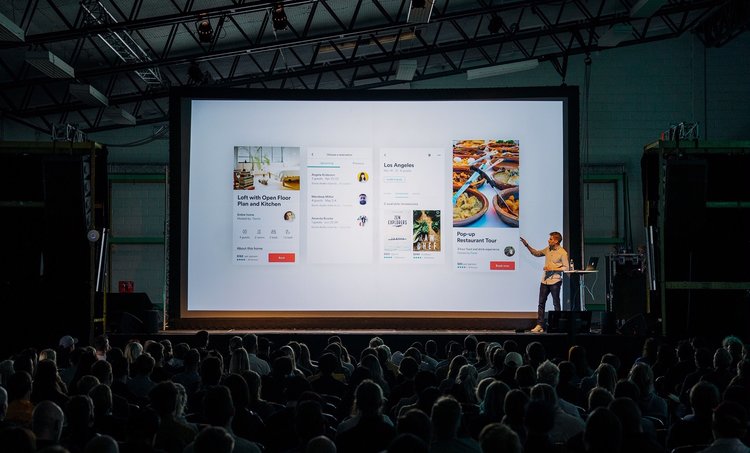 One of my biggest regrets of my early writings is how I discussed work.
One of my biggest regrets of my early writings is how I discussed work.
In particular, I regret how I described the workplace.
A lot of those posts don’t paint 9-to-5’s in the best light. And I think that was a mistake.
Contrary to what those articles imply, I actually like my job. It’s been a huge blessing to me and it’s one of the best situations I could have asked for. Any dissatisfaction I expressed stemmed from personal reasons.
So with that said, I want to use this post to paint work in a more favorable light.
Not everyone can be a full-time artist, creator, or influencer. The internet needs to stop cramming that idea into people’s heads.
Getting a “real job” is reason to be excited, not depressed. But in order to get joy out of it, you need to know what you’re doing.
That’s why I’ve taken experience from my early career to show how any young professional can thrive in the workplace.
Some points here are about gaining respect, others discuss building competence, and a few cover work relationships.
This list isn’t comprehensive by any means, but all the points below helped a younger me, and I believe they’ll help you too.
12 Ways Every Young Professional Can Thrive on the Job
#1 Be Cool with Everyone
“Everyone just…likes you.”
That’s what my coworker said after our peer strolled through the office yelling one of my countless nicknames.
Yeah, I guess he was right—most people seem to like me. But the funny thing is, I’ve never tried to be liked at all.
I’m one of the quietest people in the office. My onboarding personality test even showed that I’m a borderline hermit. So it’s not like I chat people’s ears off.
I just don’t give people reasons to not like me. And that’s a skill every young professional needs to learn.
You want to be cool with everyone. Not just the people in your department, but the people across the hall, and the ones at the front desk, and the people who get your trash too.
So always communicate directly to resolve conflict. Look for ways to improve systems instead of blaming people. And never participate in any form of gossip—word has a way of getting around.
Remember that everyone in the building is a human. So treat them well no matter what title they have.
#2 Ask All the Questions
 School weeds out people who can’t learn. Work weeds out people who don’t want to.
School weeds out people who can’t learn. Work weeds out people who don’t want to.
This is why you need to ask questions. If you don’t learn from the resources around you, you’ll never catch up to speed. But if you show interest in what others do, most of them will talk for hours.
People love to play the mentor role—especially those who are up in age. You just have to get ‘em going:
- Ask them how they solved similar problems in the past.
- Find out how they perform their daily routine.
- And don’t be afraid to just learn more about them.
Asking questions like this shows humility. It also keeps people from thinking you know everything—and trust me, you don’t want that.
People are an organization’s greatest resource. And if you ask them a few questions first, you’ll learn why they’re such great assets.
#3 Stay (or Get) in Shape
The halo effect is very real.
I’m not saying it’s right and I’m not saying you should abide by it, but people will always judge you by your appearance.
So treat your body well. Exercise before or after work. And watch how many calories you eat too.
People who take care of their bodies are more likely to take care of their business. Or at least that’s how your coworkers will see it.
You don’t have to hit the gym five times a week to benefit though. You just have to hold yourself to a higher standard.
I’m not a muscular guy for example but I’m very careful with how I eat, and people notice. Yeah, they may tease me for being slim—almost every lean person stands out at a 9-to-5—but I just laugh it off and do me.
The fact that they’re joking proves that they’ve taken notice. And you can bet they’ll notice you too if you do the same.
#4 Dress a Notch Higher
This point is similar to the last one.
People’s respect for you is dependent on your self-respect. So besides staying in shape, you should also dress a notch higher than the standard.

My work dress code is a unique example here because there’s a lot of oil in the environment. I have to wear safety shoes and some other protective equipment, so dressing like a model is out of the question.
Anything more than jeans is a huge risk at my place, but I do have some leeway with my shirts. I almost always wear a polo or some kind of button down. The lowest I’ll go is a sweater or similar long-sleeve during the winter.
I usually tuck all my shirts in too. The only time I don’t is if the shirt tail is pretty short or if it’s Friday and the whole place is casual.
I could actually show up in a t-shirt during the week if I wanted, but something about that just isn’t professional, so I try to dress a step above.
Dress codes will vary wherever you are, but you should hold yourself to a higher standard too.
Write down a few hard rules about what is and isn’t acceptable. Then adjust your wardrobe to match.
#5 Get the Worm
A great way to earn respect fast is to show up early.
Yes, the “first one in, last one out” label is cliché, but it still has weight. Plus you don’t even have to bother with the second part.
If you go in early, most places don’t have a problem with you bolting quick. As long as you get your hours in and finish your projects, it shouldn’t be an issue.
So pick a few days where you arrive at least 30 minutes early. And come prepared for a few activities when you show up.
Not only will you have the image of being one of the first people in the office, you’ll also get a headstart on your work with fewer distractions. And unless your boss has a strict “you leave at this time” rule, you’ll get the added benefit of leaving early too.
It’s a win-win for your reputation and your productivity. All it requires is a quick change to your alarm.
#6 Know Your Go-To’s
 The biggest fear many young professionals have is the idea that they don’t know enough.
The biggest fear many young professionals have is the idea that they don’t know enough.
It took me a year to get over that one, and frankly, it still nags me at times.
Working in a STEM field like I do leads to some very technical work. And it doesn’t help that the people around may literally know rocket science.
Now no one at my place deals with rockets, but there are some technical details I still need help with. And fortunately for me, I know who to talk to.
That’s the great thing about team environments:
You don’t have to know everything. You just need to know the people who do.
One of the best references to make early on is a contact list with each person’s name, role, and responsibilities. You can then use this list as a guide to determine who to talk to later.
I organize all my contacts into groups and then sort it so that my most frequent ones are at the top of the list.
A similar resource will also help you when people try to pile the work on. You can then pull out your list, point people in the right direction, and quickly get ‘em off your back.
#7 Do More, Plan Less
Another temptation you’ll have as a young professional is a desire to hit home runs.
You’ll only have eyes for the big projects. All the day-to-day stuff and simple fixes will feel like a waste of time. But contrary to that feeling, most managers actually prefer the opposite.
In my experience, upper management is more satisfied by small, continuous improvement—a.k.a. a Kaizen approach. They also favor people who quickly get this work done.
Obviously, there’s a place for larger projects, but as a young employee, you want to look for ways you can bring value fast.
Simple stuff like organizing a workspace, ordering new tools, or gathering quotes from multiple suppliers is enough to make a difference.
Anything that puts the company in a better position than the day before will do wonders.
Managers want to see your work, not your plans. So shrink the scope of your projects, and knock out the small stuff whenever possible.
#8 Document Everything
One area that many employees neglect is documentation.
They either don’t realize how present actions can be useful later, or they’ve never had the pleasure of being grilled by an auditor.
Either way, you need to get in the habit of keeping good records:
- Organize your files so you can find them years later.
- Scan your hard copies or take pictures for digital accounts.
- And if you really want to get fancy, make a to-do list that tracks your actions, their priorities, and both their start and finish dates.

Doing this will cover your back when audits occur and build a list of achievements for resume-building. It will also create work history to prevent future problems.
I can’t tell you how many times I saved hundreds or even thousands of dollars simply because I had a record of past issues. You don’t want to be the person who repeats problems because you didn’t write it down the first time.
No, documentation isn’t a fun part of the job, but if you do all this work upfront, you’ll avoid plenty of headaches in the future.
#9 Always Have an Answer
This is one of the most important rules for every employee to follow:
You should always have an answer.
If a project falls under your umbrella, you need to know enough about the status to have a conversation on it. A three to five minute talk should be the standard for anything major.
Management may need to know something out of the blue, customers may be curious, or you may have to bring coworkers up to speed. But no matter the reason, you need to have an answer:
- If you order an item, get the ETA.
- If you plan an activity, form a timeline for completion.
- And if you’re unsure about the data, know where to find it.
I’m not saying you have to know every detail about the plates you spin, but if you know enough to give a concise summary, you’ll at least show that you care about them all.
#10 Have a Thing
It’s important for young professionals to put their stamp on an activity early.
Showing competence in a skill early on will bring more opportunities later. It could also make you someone else’s go-to contact.

I have a good background in problem-solving, data analysis, and statistics for example. And I’m the subject-matter expert for some statistical problem-solving tools we use.
One of the reasons I’m in this position now is because I got heavily involved in a related project when I was hired.
People saw what I was able to do then, and they gave me more responsibility. So now people come to me when they need help with similar stuff.
That’s what you want as a young employee.
You want to put your mark on an activity early, and hopefully fill a void your employer needs to fill. This will make you an authority on a subject and potentially lead to larger roles in the future.
#11 Expand Your Reach
A big pitfall for many employees is a reluctance to move beyond their department. This is especially dangerous for young professionals because they haven’t seen as much success in their short careers.
But if your role allows, it’s best to dabble in multiple areas, and here are a few reasons why:
- You’ll form a more holistic view of what your company does.
- You’ll make connections with people you otherwise wouldn’t know.
- You’ll gain more experience adapting to foreign challenges.
All of this will come in handy as you gain responsibility. And those connections may lead to a role in the area if you had success there already.
#12 Present, Present, Present!
Remember how I said management likes to see tangible work?
Well this is your chance to show it.

It’s hard enough to learn the ropes as a new hire, but what’s also difficult is gaining recognition.
No, you don’t need validation for every move you make, but some of the projects you complete will need some attention, and you can’t be afraid to get it.
You should always present a summary of each completed project when you have the chance. Doing this will let managers see results that aren’t obvious. It will also help your team by sharing the methods and tools you used to succeed.
Sure, it’s intimidating to pull in the big guys as a young professional, but doing this early on will prevent nerves in the future. And if your company has global ties like mine does, it’ll be great practice for presenting to people across the pond.
So gather good data, be concise, and focus on what your audience wants to hear.
They will gladly accept your invites if you do.
Welcome to the Team
 And that’s how you do it.
And that’s how you do it.
Thriving on the job isn’t so much about being the smartest person in the room…
It’s about being a reliable teammate who your coworkers can trust.
So handle your business, stay organized, and of course, respect yourself.
If you do all that, they’ll be forced to treat you like the pro you are.
-Drew
Leave a Reply